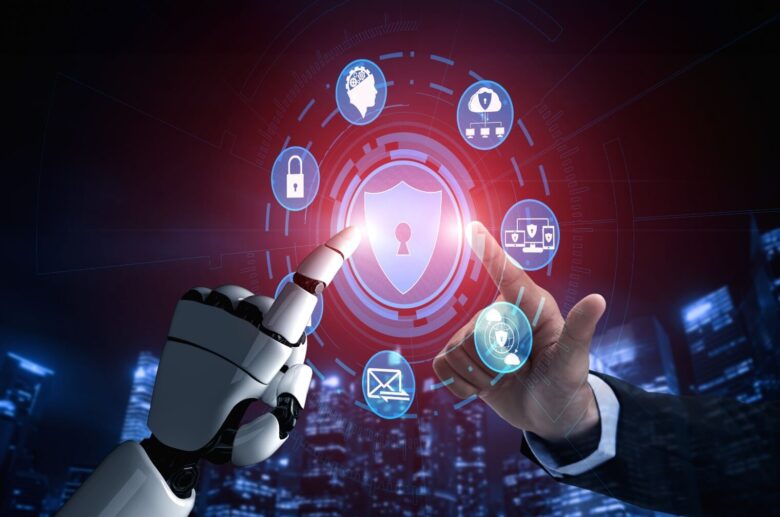Recently, automation and artificial intelligence have changed the way industries operate. These technologies improve efficiency and change how selection, service delivery, and consumer interactions are done. These new technologies are being used in many different ways, such as in robots on assembly lines in factories and in artificial intelligence in the financial sector to observe investment trends. This change means we are moving away from old-fashioned, labor-intensive methods to intelligent, data-driven processes that focus on speed, accuracy, and scalability.
Enhancing Operational Efficiency with Automation
Automation has become an effective way to improve efficiency by replacing tasks that previously required manual labor, repetition, and time-consuming work. Software robots can perform administrative tasks such as processing invoices, data entry, and managing payroll with fewer errors and significantly faster. Automated systems in warehouses can track inventory and smooth logistics with astonishing precision. This change reduces human errors, speeds up work, and frees up employees to perform more strategic and creative tasks, increasing overall productivity.
AI’s Role in Data Analysis and Decision Making
Artificial intelligence has dramatically improved the way organizations understand data. AI can look through vast data sets and discover patterns, trends, and insights that humans would not be able to discover or would take too long to discover. This is done using machine learning algorithms and predictive analytics. Businesses use this data to make informed decisions about how to sell products, what customers want, how to manage inventory, and how to assess risk. This data-driven approach to decision-making makes it more accurate and helps organizations stay competitive in a constantly changing market.
Transforming Customer Experiences Through AI
Artificial intelligence in customer service has changed the way businesses communicate with their customers. Chatbots and virtual assistants are already widely used on websites and in apps. They can answer questions instantly, help users navigate through the service, and recommend products that are right for them. These AI tools are always on, so customers can get help right away without having to wait. AI systems can also learn from past interactions to better respond in the future, making the customer experience more natural and enjoyable in the long run.
Personalization at Scale Using AI Algorithms
One of the biggest benefits of AI is that it can deliver personalized experiences to customers at scale. AI allows companies to treat each consumer as a unique individual. For example, e-commerce sites can recommend products based on what you’ve previously watched, and streaming services can curate content that suits your tastes. In the past, this kind of personalization was only possible on a small scale thanks to human judgment. With AI, organizations can now do such tasks for thousands or millions of people at once, increasing engagement and customer loyalty.
Revolutionizing Human Resources and Recruitment
AI and automation are also changing the way companies hire and manage employees. Automated systems can now assess resumes using algorithms, conduct initial interviews using chatbots, and use algorithms to determine whether a candidate is a good fit for the role. These tools not only reduce the time and money it takes to hire someone; they also reduce bias in the selection process. AI is also being used to monitor employee performance, suggest training programs, and even predict when an employee might leave, helping HR departments plan more strategically.
Changing the Manufacturing and Supply Chain Landscape
Automation and artificial intelligence make manufacturing more efficient and flexible. Intelligent machines on the production floor can perform complex tasks with outstanding precision and minimal supervision. Predictive maintenance powered by AI can detect equipment issues before they theyoutstandinglop into problems, reducing downtime and maintenance costs. Artificial intelligence (AI) can help supply chain managers find optimal routes, predict demand, and track inventory in real time. The result speeds up delivery and reduces operating costs. The resulte improvements make manufacturing more flexible and responsive to market changes.
Financial Services Benefiting from Intelligent Automation
The article highlights the benefitsd other financial institutions were among the first to use AI and automation to detect fraud, trade algorithms, and assist customers. Machine learning models can analyze transaction trends to detect unusual activity and prevent fraud. Robo-advisors provide investment advice based on the most up-to-date information and user needs. Automated processes simplify compliance reporting and documentation, making employees’ jobs easier and more accurate. These new ideas are helping financial institutions do their jobs more safely and efficiently.
AI in Marketing and Consumer Behavior Analysis
Marketing teams are using AI to create better-performing ads and learn more about how people behave. AI tools can observe social media trends, website activity, and purchasing patterns and develop personalized advertising plans based on these insights. Sentiment analysis can be used with natural language processing, which helps brands better understand how customers feel about their products or services. AI can also test and improve other types of ads in real time so that more people click on them and buy something. This capability makes marketing more agile and data-driven.
Challenges and Considerations in Adopting AI
Despite the many benefits, using AI and automation in business is not always straightforward. Carefully addressing data privacy, cybersecurity concerns, ethical issues, and potential job losses is crucial. Carefully addressing data privacy, cybersecurity concerns, ethical issues, and potential job losses is crucial.lso critical to consider the human side of things. Ensure employees are supported through change and that technology complements people’s skills rather than clashing with them.
Preparing the Workforce for an Automated Future
As artificial intelligence and automation become more prevalent, the way we work is changing. To meet the demand for new jobs created by these technologies, companies must focus on reskilling and upskilling their employees. Training and education programs can help employees gain the digital and analytical skills they need to succeed in an AI-driven workplace. To ensure individuals stay relevant and companies maintain a competitive edge, it’s important to emphasize lifelong learning and adaptation.
Conclusion
Automation and artificial intelligence are fundamentally changing the way businesses operate. They make everything run more smoothly, help people make better decisions, and improve the customer experience. These technologies are changing the way businesses operate in many areas, including manufacturing, marketing, human resources, and financial services. For integration to succeed, people must use it responsibly, adhere to ethical guidelines, and be willing to train employees to solve new problems. Companies that embrace these new technologies and take into account what people know will be at the forefront of the digital age.
FAQs
1. What is the difference between artificial intelligence and business automation?
Automation means using machines or software to do the same thing over and over again. Artificial intelligence, on the other hand, allows computers to learn, think, and make judgments based on data.
2. How can AI improve customer service?
AI improves customer service by providing fast, personalized answers through chatbots and virtual assistants. The result is happier customers and faster response times.
3. Can artificial intelligence do human work?
AI can perform some tasks on its own, but it also creates new professions that require different talents. The goal is to augment the capabilities of humans, not replace them entirely.
4. Is it expensive for small businesses to use AI?
Some AI tools can be expensive, but there are also many scalable and affordable tools that small businesses can use, especially for marketing and customer support.
5. What are the ethical issues surrounding the use of artificial intelligence in business?
Ethical concerns include data privacy, bias in AI algorithms, lack of transparency, and potential job losses. Companies must deal with these issues responsibly.




